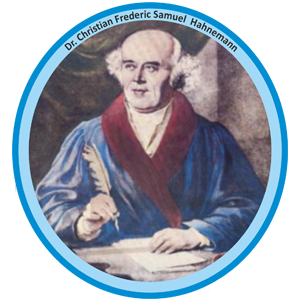Father Of Homoeopathy

Dr. Christian Frederic Samuel Hahnemann is popularly known as Father of Homoeopathy. He was a German physician. He was born on 10 April 1755. He is also known as the Father of Experimental Pharmacology because he was the first physician to prepare medicines in a specialized way by proving them on healthy human beings, to determine how the medicines acted to cure diseases.
He was born in Meissen, Saxony near Dresden. His father Christian Gottfried Hahnemann was a painter and designer of porcelain, for which the town of Meissen is famous.
As a young man, Hahnemann became proficient in a number of languages, including English, French, Italian, Greek and Latin. He eventually made a living as a translator and teacher of languages, gaining further proficiency in Arabic, syriac, chaldaic and hebrew.
Hahnemann studied medicine for two years at Lepzig. Citing Leipzig's lack of clinical facilities, he moved to Vienna, where he studied for ten months. After one term of further study, he graduated MD at the University of Erlangen on 10 August 1779, qualifying with honors.
His poverty may have forced him to choose Erlangen, as the school's fees were lower. Hahnemann's thesis was titled Conspectus adfectuum spasmodicorum aetiologicus et therapeuticus. [A Dissertation on the Causes and Treatment of Cramps]
In 1781, Hahnemann started to work as a village doctor in the copper-mining area of Mansfeld, Saxony. He married Johanna Henriette Kuchler and eventually had eleven children. Later he abandoned medical practice and worked as a translator of scientific and medical textbooks.
Hahnemann travelled around Saxony for many years, staying in many different towns and villages for varying lengths of time, never living far from the River Elbe and settling at different times in Dresden, Torgau, Leipzig and Kothen before finally moving to Paris in June 1835.
